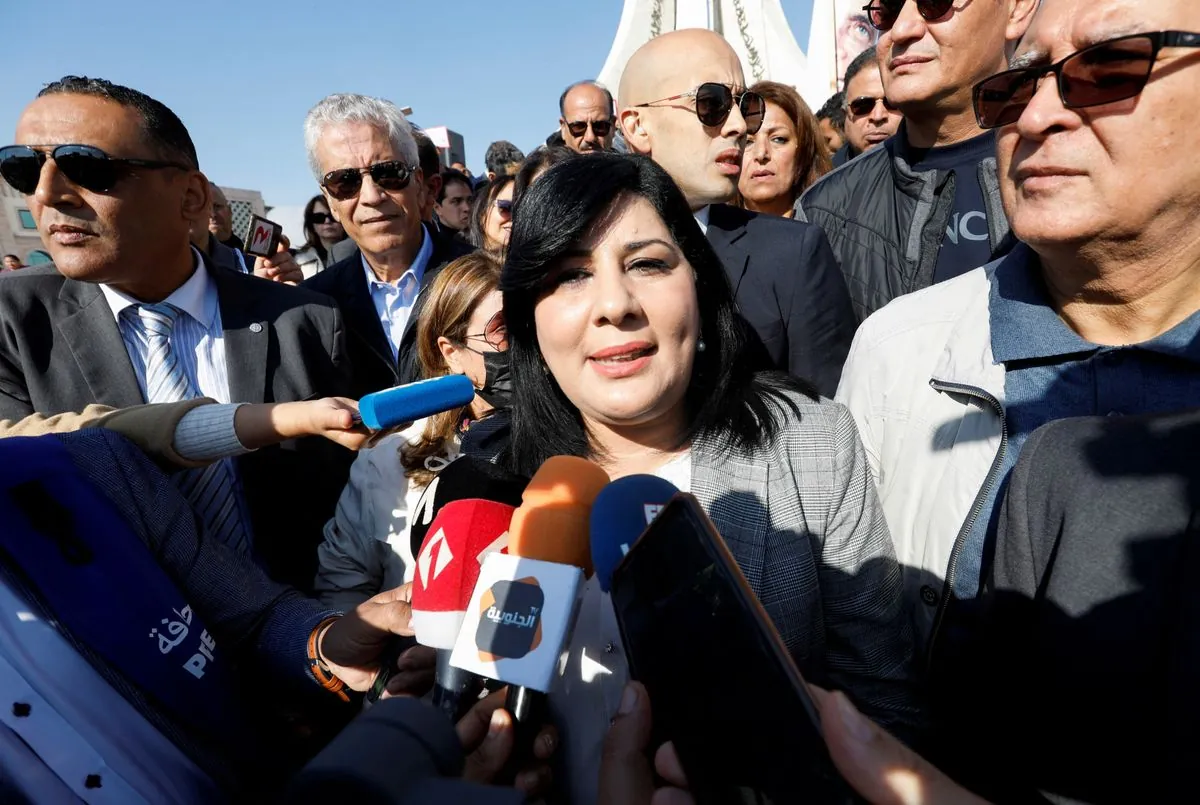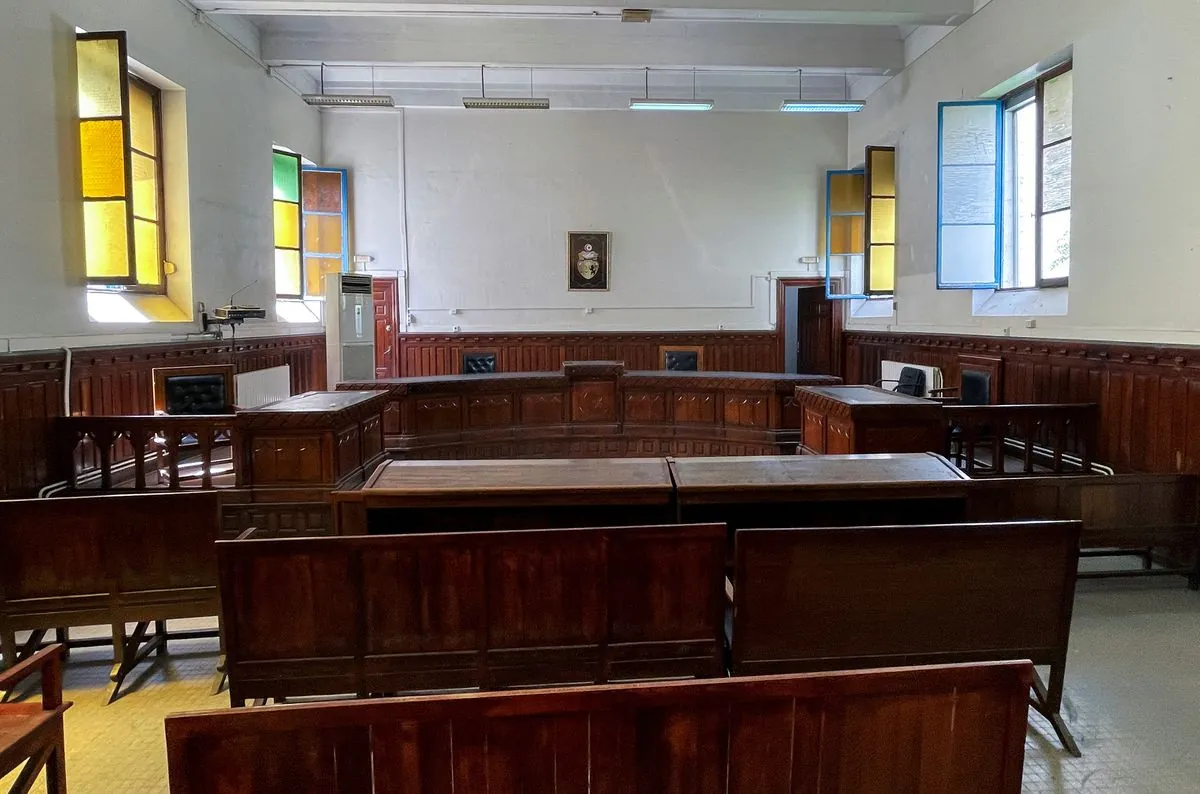Tunisian Opposition Leader Jailed Ahead of Presidential Election
Abir Moussi, a potential presidential candidate in Tunisia, has been sentenced to two years in prison for criticizing the electoral process. The verdict raises concerns about political freedom in the country.

In a significant development in Tunisia's political landscape, Abir Moussi, a 49-year-old lawyer and leader of the right-wing Free Destourian Party, has been sentenced to two years in prison. This verdict, delivered on August 5, 2024, comes just two months before the country's presidential election scheduled for October 6, 2024.
Moussi was arrested in October 2023 after voicing criticism of the electoral process and presidential decrees guiding it. She was found guilty of violating an anti-fake news decree, which prohibits the spread of information deemed slanderous or harmful to others. This law has been frequently employed to prosecute critics of the authorities.
Despite the sentence, Moussi's legal representative, Nafaa Laribi, stated that she still intends to run in the upcoming presidential election. Laribi emphasized that the verdict does not legally prevent her from participating as a candidate.

This case is viewed as part of a broader crackdown on opposition figures challenging President Kais Saied as he seeks re-election. With several leading opposition members now imprisoned, Saied is expected to face minimal competition in the election.
Moussi, known for her criticism of Islamist groups and her past association with former President Zine El Abidine Ben Ali's ruling party, appeals to segments of the population nostalgic for Tunisia's pre-revolutionary era. Her political stance and popularity have made her a contentious figure in Tunisian politics.
"Moussi's morale remained high, and he planned to appeal."
This recent development raises concerns about the state of political freedom in Tunisia, a country that was once considered the most progressive democracy in the Middle East and North Africa region. Since gaining independence from France in 1956, Tunisia has experienced significant political changes, including the 2010-2011 Tunisian Revolution that sparked the Arab Spring.
Tunisia's journey towards democracy has been marked by both progress and challenges. The country adopted a new constitution in 2014, establishing a semi-presidential system. However, in July 2021, President Saied suspended parliament and dismissed the prime minister, actions that have been criticized as undermining democratic institutions.
As Tunisia approaches its presidential election, the country continues to grapple with economic challenges, including high unemployment and inflation. Despite these issues, Tunisia has made notable strides in areas such as education and women's rights, boasting one of the highest literacy rates in Africa and progressive laws compared to other Arab nations.


































